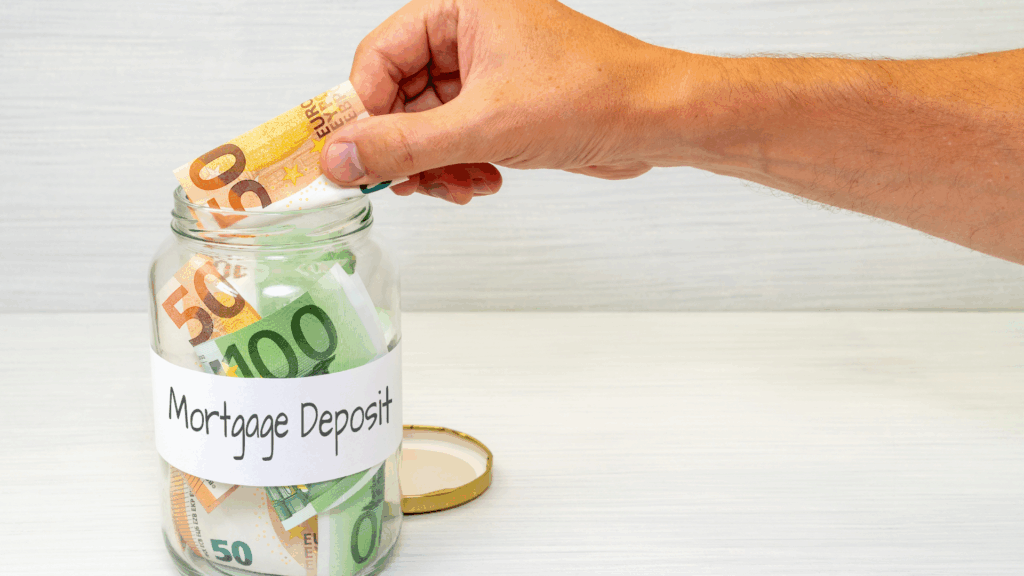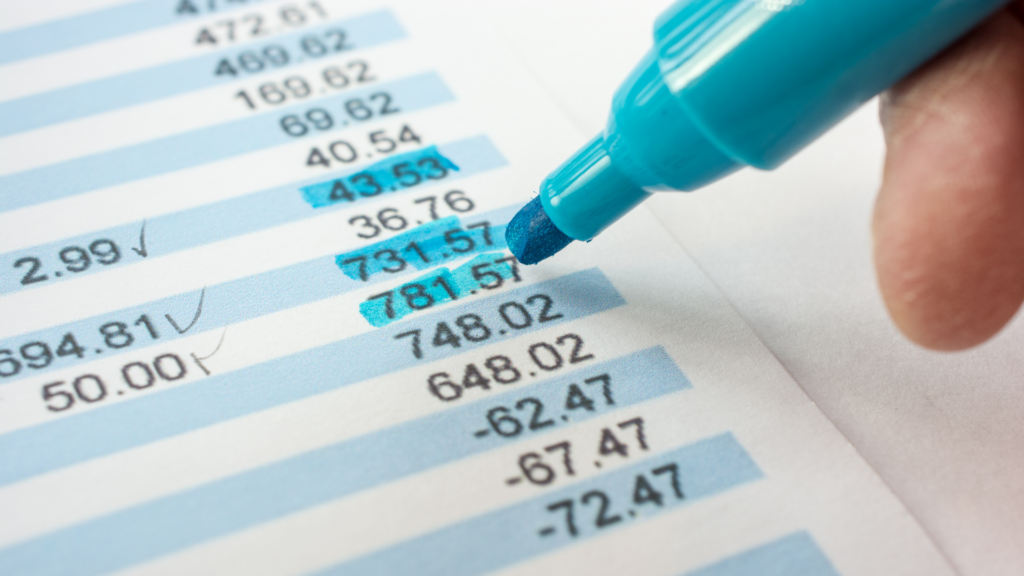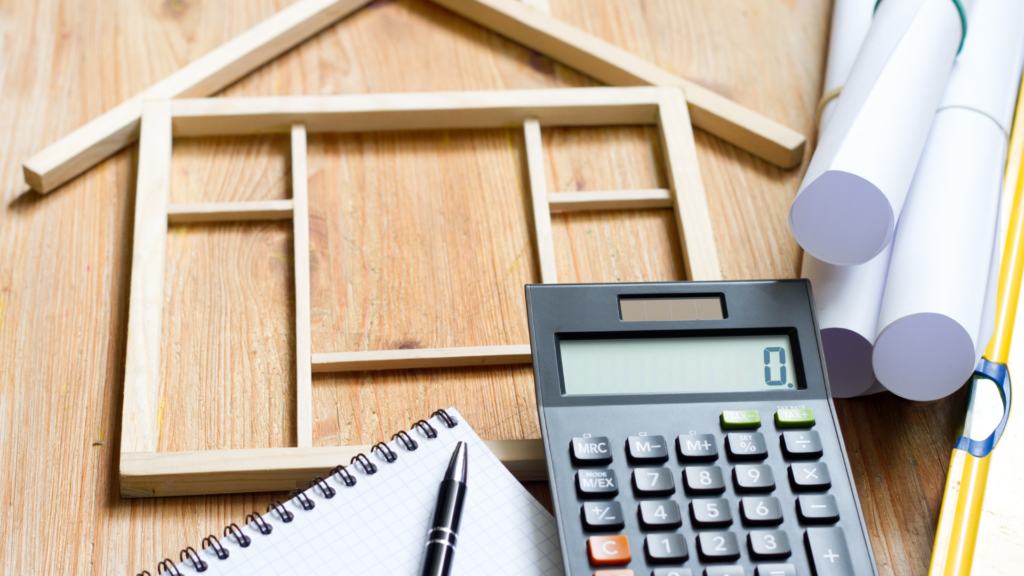A Complete Guide For Second Mortgages Deposits
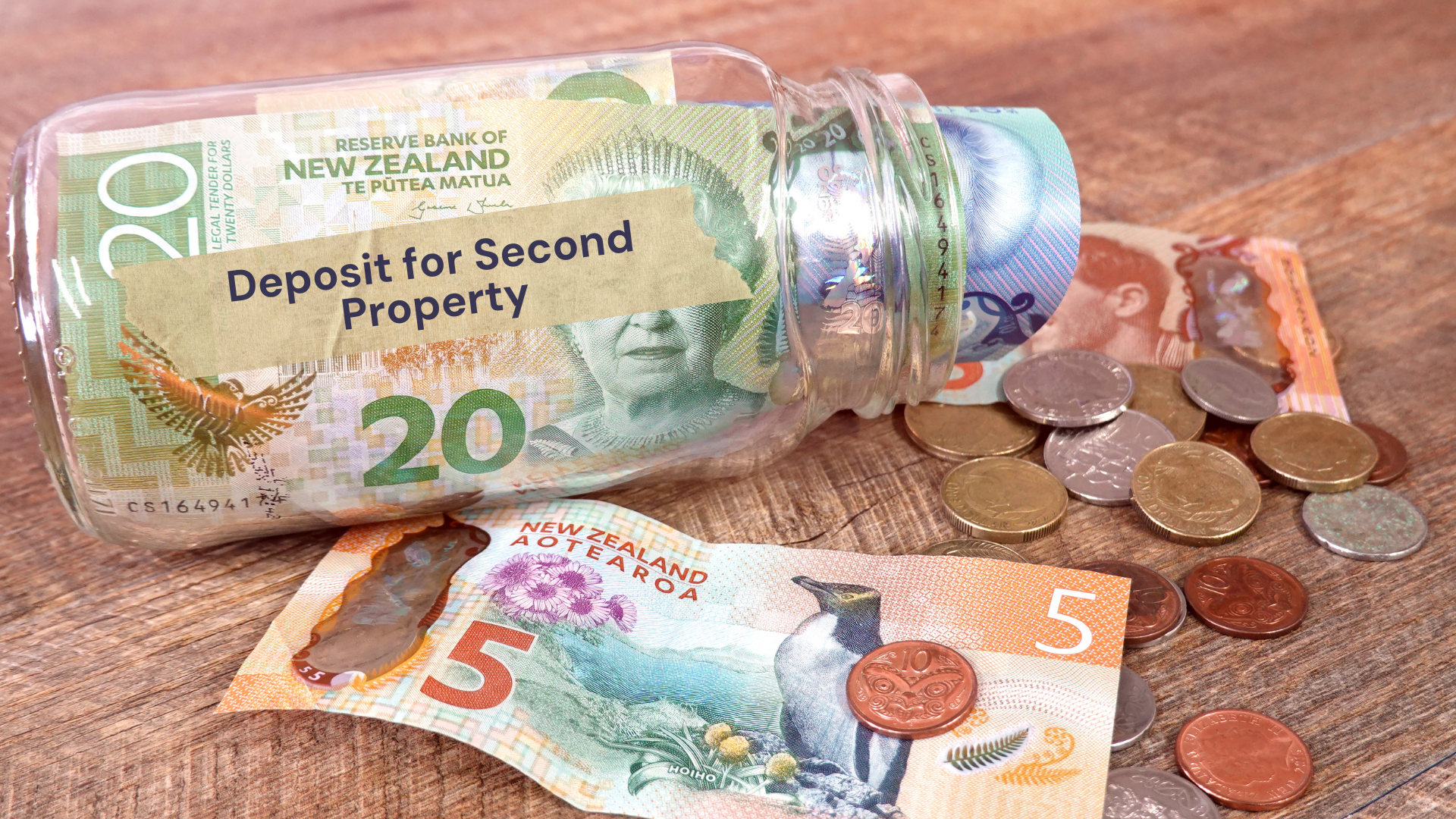
A second mortgage is a type of loan that you can take out on top of your existing mortgage.
You’re borrowing against the value of your home again, but this time, the loan is considered secondary to your primary mortgage.
There are two main kinds of second mortgages. You can get one to buy a second home, perhaps for holidays or as a family getaway. Or, you might choose a buy-to-let mortgage to purchase a property you’ll rent out.
What’s the difference? A second home is for your own use, while a buy-to-let property is for renting to others.
Lenders have specific rules when it comes to second mortgages. They’ll look at how well you’ve been paying your current mortgage, your overall financial health, and how much your home is worth.
Knowing these rules helps you figure out if you can get a second mortgage. This guide will explain everything to know about the deposit requirements for second mortgages.
How Much Deposit Do I Need for a Second Mortgage?
For a second home, most lenders ask for a minimum of 15-20% of the property’s price. This can vary based on your financial situation and the property’s value.
If you’re eyeing a buy-to-let property, the stakes are a bit higher. Here, you’re likely looking at needing a 25% deposit or more. This higher deposit compensates for the greater risk lenders take when they allow you to borrow for an investment property.
In short, here’s what influences the amount of your deposit:
- Type of mortgage (whether it’s for a residential property or a buy-to-let)
- The equity you already have in your home.
- How well you’ve managed debts, including your current mortgage
- The amount you wish to borrow, shown as a loan-to-value (LTV) ratio.
- Your income and any existing financial obligations you have.
- The property you want to buy (standard properties or non-standard ones)
- Economic factors and interest rates can influence deposit requirements.
Getting clear on these details can help you plan better for your second property purchase.
How Much Equity Do You Have in Your Current Home?
Equity is the part of your home you actually own, the value of your home minus what you still owe on your mortgage.
To find out how much equity you have in your home, you subtract what you still owe on your mortgage from the current value of your house. Here’s a simple formula:
Home Equity = Current Home Value – Remaining Mortgage Balance
Let’s say your home is worth £300,000, and you still owe £200,000 on your mortgage. Using the formula:
£300,000 (home value) – £200,000 (what you owe) = £100,000 (your equity)
Now, if you want to buy a second property and you need a deposit, you can use some of this £100,000 equity instead of using cash.
This means you might not need to save as much cash for your second mortgage deposit.
This can make getting a second mortgage easier and might even reduce the amount of extra cash you need to put down as a deposit.
Basically, more equity can mean less stress when you’re looking to buy that second home.
How Reliable Have You Been with Previous Debt Payments?
Lenders really care about how you’ve paid your past debts before they give you another mortgage.
Doing well with your current mortgage payments is great for your credit score. A better credit score might help you get a lower deposit requirement because you seem less risky to lenders.
If your credit score isn’t great, lenders might ask you for a bigger deposit to balance out the risk. This means you need to save more money upfront.
Your home equity plays a big role too. As we’ve discussed, equity is the part of the home you truly own—paying your mortgage on time means you might’ve built up equity in your home.
If you have a lot of equity, you might be able to use it to help pay for another property. But if you owe more on your home than it’s worth, known as negative equity, getting a second mortgage could be tricky.
Lenders see this as risky because it suggests property values could drop further.
How Much Are You Planning to Borrow?
The amount you plan to borrow directly impacts your deposit needs. This ties into what’s called the loan-to-value ratio, or LTV.
LTV is a way of showing how much of the property’s total price you want to borrow. For example, if a house costs £100,000 and you borrow £80,000, your LTV is 80%.
Most lenders offer second mortgages up to 80% LTV.
If your LTV is high, it means you’re borrowing most of the property’s value. Lenders might think that’s a bit risky, so they could charge higher interest or have stricter rules.
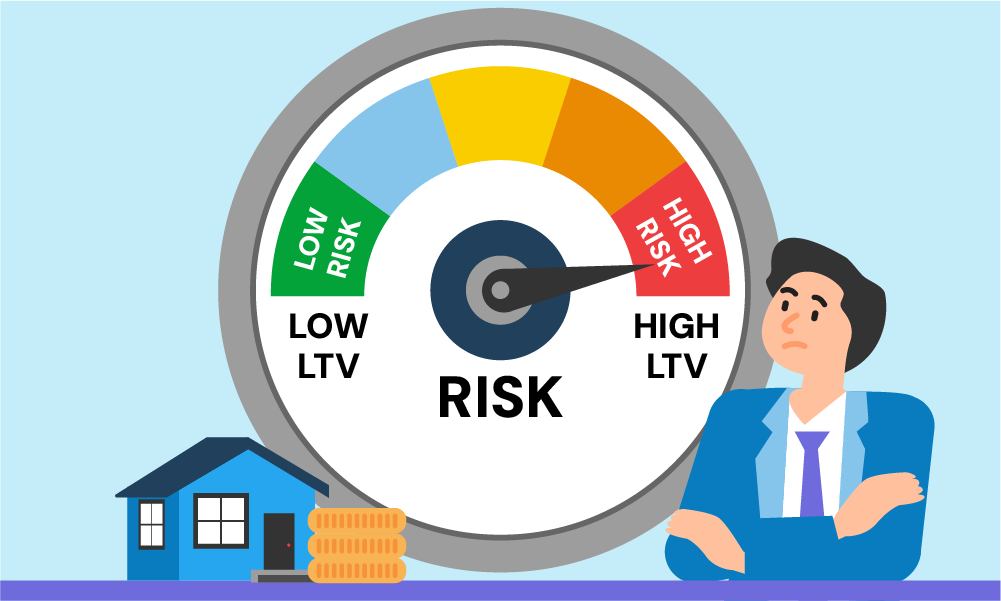
Lenders also consider how much they’ll lend based on your income, typically between three to five times your annual salary. This means if you earn more, you might be able to borrow more but remember, it will affect your LTV and possibly your deposit size.
On the other hand, if you borrow less, your deposit might be smaller.
Remember, you need to be careful with how much you borrow. Paying for two mortgages is a big financial responsibility.
Choose a sensible borrowing amount to make managing both loans easier and keep your deposit more affordable.
What Does Your Financial Situation Look Like?
Your financial situation is key when figuring out how much deposit you need for a second mortgage. Lenders check how much you earn and your debts, like loans or credit card bills.
This is where your debt-to-income ratio, or DTI, comes into play. DTI shows how much of your monthly income goes towards paying off debts.
Let’s say you earn £2,000 a month and your debts take up £760. Your DTI would be 38%, which is good because a DTI between 36-46% is generally what you should aim for to get decent loan terms.
If your income is high and your debts are low, you might not need a big deposit.
But if a lot of your income goes to debt, lenders might ask for a bigger deposit. They need to be sure you can manage another loan.
In short, the lower your DTI, the better mortgage terms you get.
Additionally, when applying for a second mortgage, you’ll need to provide some documents:
- Proof of your income, like recent payslips or tax returns
- Bank statements
- Details of your existing mortgage
- Information on current debts
- Proof of identity, such as a passport or driver’s licence
- Proof of address, like a recent utility bill
Having these documents ready helps show lenders you’re prepared and serious about taking on a second mortgage.
What Kind of Property Are You Looking to Buy?
The type of property you want to buy affects how much deposit you need. If you choose a standard property, you might not need a big deposit. Standard properties in the UK include:
- Detached or stand-alone houses
- Semi-detached
- Terraced
- Bungalows
- Cottages
- Flats
- Maisonettes
- Studios
These are easier for lenders to deal with because they’re familiar and easier to sell if needed.
However, if you’re interested in a non-standard property, things get a bit different. Non-standard construction properties can include:
- Houses built with unusual materials like timber or steel frames
- Properties with thatched roofs
- Houses with unique designs or historical value (Listed buildings)
- Prefabricated concrete houses
- Cob houses
- Modular homes
- Corrugated iron roofs
- Living roofs
These properties are riskier for lenders because they’re not as common and can be harder to sell.
So, lenders might ask for a bigger deposit to cover this risk. Just remember, the more unusual the property, the more you might need upfront.
If you’re thinking about buying a property like this, it’s a good idea to talk to an expert. They can give you advice on what to expect and how to prepare.
How Do Economic Factors and Interest Rates Affect Your Deposit?
The Bank of England’s base rate is currently at 5.25%. Higher interest rates mean borrowing money for a second mortgage costs more.
When interest rates are up, your monthly payments are higher too.
This can make it hard to manage your budget, especially if you have two loans. Because of this, lenders might ask for a bigger deposit.
A bigger deposit means you borrow less, reducing the risk for lenders if you struggle to make payments.
Economic factors also play a big role. If the economy is struggling, jobs and wages might not be as secure. Lenders become more cautious in uncertain times.
They might increase the deposit amount needed to ensure that you can really afford the new mortgage in tougher economic conditions.
So, higher deposits can be their way of playing it safe when economic signs aren’t so strong.
How To Use Equity as a Deposit for a Second Mortgage?
As we’ve discussed, if you’ve paid off a large part of your first home, you’ve built up what’s called equity. This is the portion of your home that you truly own outright. You can use this equity to help buy another property.
There are a few ways to use your home equity:
- Remortgaging. You can replace your current mortgage with a new one for a higher amount, based on the increased value of your home. The extra cash you get from this can be used as a deposit for your second home.
- Second-Charge Mortgage. This is a separate loan that you take out alongside your existing mortgage, secured against the equity in your home.
- Home Equity Loan. You borrow a lump sum using the equity in your home as security, which you can then use as a deposit.
- Home Equity Line of Credit (HELOC). This gives you access to funds up to a certain limit, using your home as collateral, much like a credit card.
Using your home’s equity can be a powerful way to purchase a second property without needing to save a large cash deposit. However, it’s important to remember the risks.
You’re increasing the amount of money you owe, and if you can’t keep up with repayments, you risk losing your home. Always make sure you can manage the additional borrowing before proceeding.
Is a 10% Deposit Sufficient for a Second Mortgage?
A 10% deposit might be enough for a second mortgage, but it’s not always ideal. It depends on what you want to do with the property and what the lender is willing to offer.
If you only have a 10% deposit, you might find that not many lenders will give you a mortgage. Those that do might charge you higher interest rates.
If you want better rates and more choices, you might need a bigger deposit.
Saving a larger deposit can make a big difference. It can lower your monthly payments and give you access to better mortgage deals.
Here’s a tip: start saving early if you’re thinking about buying a second property. Cut back on unnecessary spending and maybe put any extra money into a savings account. This can help you build up the deposit you need for the best possible mortgage options.
Key Takeaways
- To buy a second home, you usually need a deposit of at least 15-20%. If it’s a rental property, the deposit is often 25% or more.
- You can use the value of your current home (called equity) to help pay for the deposit on a second property, which means you might not need as much cash.
- Lenders check how well you’ve paid debts before. If you’ve been good with payments, they might let you pay a smaller deposit.
- If the property you’re buying is unusual, like one made with special materials or very old, lenders might ask for a bigger deposit because it’s riskier for them.
The Bottom Line
To get the best deal on a second mortgage, you should look at offers from different lenders. This means checking out what different banks and mortgage companies can offer you.
Some might have lower interest rates or better terms, especially if you have a good history with your first mortgage.
It’s also a smart move to talk with mortgage advisors who know all about second properties. These experts understand the unique challenges and opportunities of getting a second mortgage. They can guide you, show you the best deals, and help you avoid any pitfalls.
Need a broker? Get in touch with us. We’ll connect you with a good mortgage broker specialising in second mortgages.
Get Matched With Your Dream Mortgage Advisor...

Frequently asked questions
What deposit do lenders expect if you're buying again but don't own a home?
If you’re looking to buy a home after selling your share in a previous property, perhaps due to a change like a divorce or relocation, lenders usually expect a deposit of about 10-15%. This deposit helps ensure you can manage the mortgage payments on your new home.
However, some lenders might have different requirements. It’s best to speak with a mortgage advisor to understand the specific deposit needed for your situation.
How much deposit is required to buy a second property if the first property is owned outright?
If you own your first property outright and are looking to buy a second one, lenders generally expect a deposit of around 15-25%. This range can vary based on the property type and your financial situation.
It’s a good idea to consult a mortgage advisor for the most accurate advice tailored to your circumstances.

